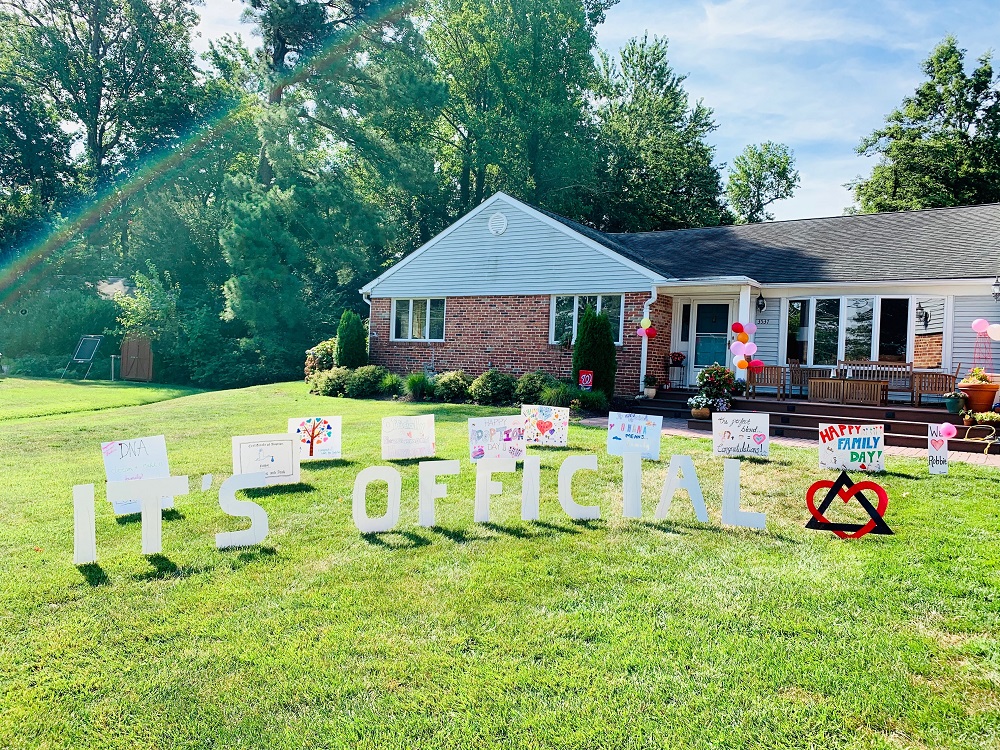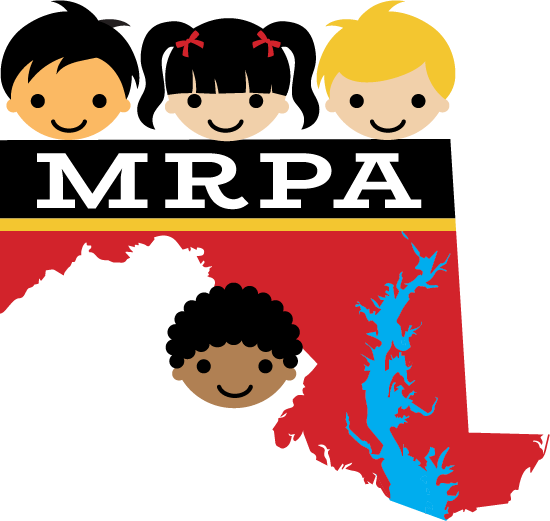The MRPA is delighted to share the personal Foster-to-Adoption story of Katie Fitzsimmons, President of the Anne Arundel County Foster Parent Association.
.  (Shared from the most recent newsletter of the AACFPA)
(Shared from the most recent newsletter of the AACFPA)
This month we adopted our Foster Son. He was our first placement and was with us for almost 26 months before we were able to finalize. In the weeks coming up to our adoption, I have been reflecting on our experience in Foster Care – the good stuff, hard times, supports and surprises. I wanted to share some of our thoughts in hopes you will find them relatable, comforting and maybe a little inspiring.

2. You can support and love your foster kiddo(s) AND their parents. When our son first came home, I wanted to Mama Bear him, protect him from his past. I compared us to his bio parents. I judged them and thought, if they really loved him, they would change. It put me in a mindset that wasn’t helping me, our family or our son’s bio parents. I really struggled. I didn’t like seeing them. It was a hard reminder they were his parents, not me. Thankfully, my wife is my counter weight. She kept showing our son’s parents empathy, compassion, kindness. She was so good at it. She finally said to me, “It’s easier to show them love than to show them judgment.” I held on to that. I started saying to myself – just give. I’ll never regret giving. I stopped thinking about our foster care journey as mine, and something that I shared with my wife, our son, our foster son and his family. It felt better to give. It felt better to love. Our son’s parents felt it. They knew we loved them, no matter what.
3. Let go and connect. You know what foster families can control during foster care? Their behavior. Can you control outcomes? Nope. Bios behavior? No way. Social workers or the court? Don’t even think about it. Being a foster parent is one of the few experiences in my life in which I could not control or really even affect the outcome of his case. I had to accept and live in the fact that I could not have, or ever have any control over how our son’s case went. The only thing we could control was our behavior. With that in mind, plus the processing I was already doing with #2 above, we used the one thing we could control, our behavior, and focused it on developing relationships. Not only did we attend most visits, we got out of the car, made small talk and engaged so we could see and connect with bios, family support workers, reunification and visit workers. We invited attorneys and CASA’s into our home so we could get to know them and they could get to know us. We were easy to work with, always keeping our workers informed and sharing our documentation. We were intentional with the relationships with made. It didn’t change the loss of control I still felt, but it did feel good to show our team that we were doing good work for our foster son.
Foster care is the best and hardest thing I’ve ever done. I’m so glad to share this journey with all of you.
